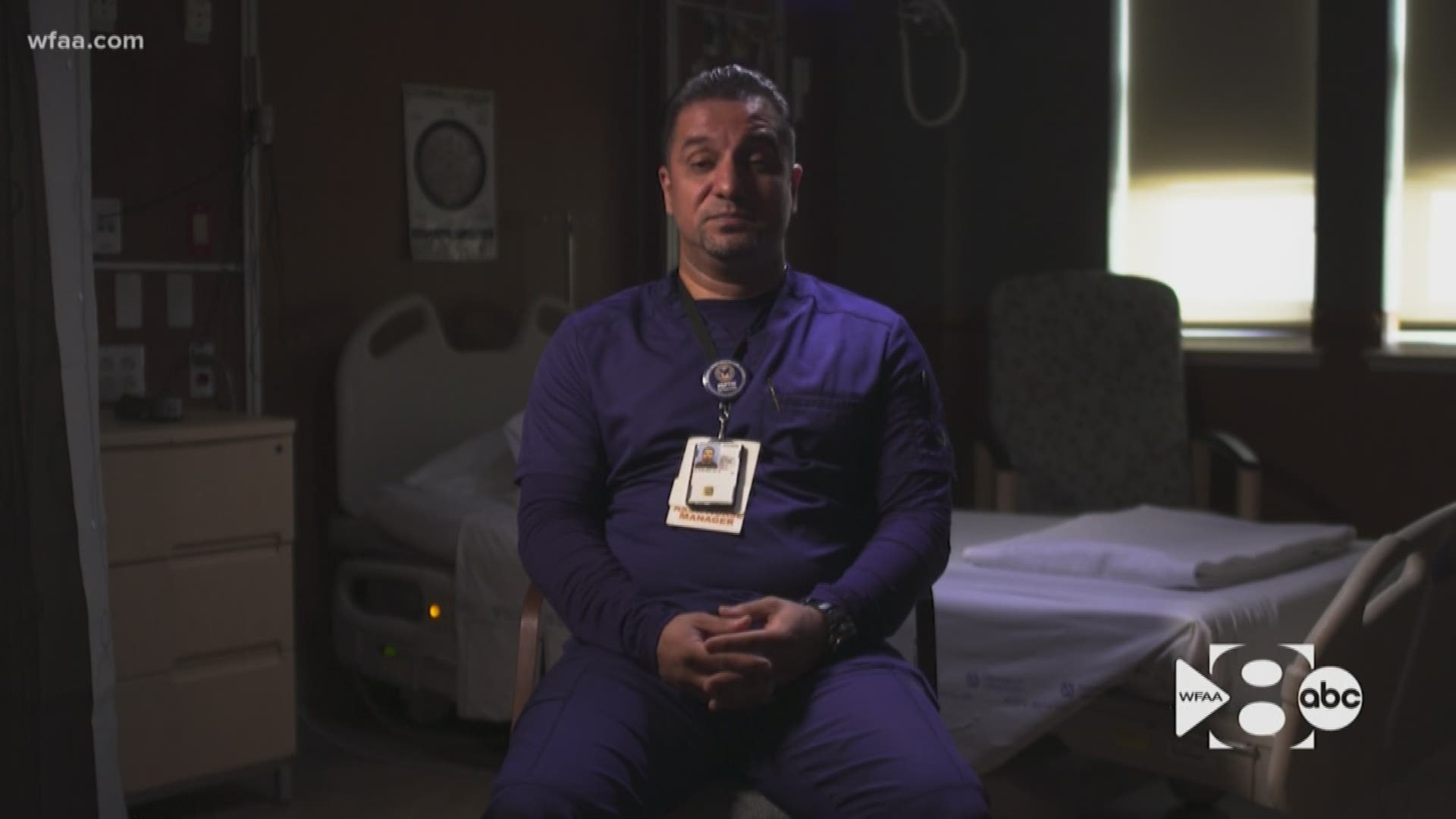DALLAS — There are so many different definitions of what an American is, and we all took such varied paths to get here.
Ali Alrubaiee’s journey to peace in the U.S. started with the war in Iraq.
He was born in Baghdad.
“Back then I think we were enslaved in that country. We didn’t know what was out there. Two channels on the TV, no internet, no cell phones. You’re isolated,” he said.
“If someone had a satellite and Iraqi security discovered it, you'd be executed or at least be sent to jail with a fine that would impact your life – and your family’s lives – forever."
Alrubaiee learned English by watching bootlegged American movies and listening to British radio broadcasts.
He remembers the moment he heard American troops had arrived in Iraq in 2003.
“I was listening to the news around 2:00 a.m. or 3:00 a.m. and they said the coalition forces started the operation,” he said.
“So I ran around and started waking everybody up and said, ‘The freedom is here! They’re going to liberate us!’”
He believed toppling Saddam Hussein’s regime was a noble mission, so he began searching for a way to support American troops.
He lived near a gas station where the military was stationed.
“I started speaking English and the soldiers started screaming, ‘Hey, there's someone speaking English down here!’” he remembered.
A captain in the U.S. Army asked if he’d like a job translating.
Alrubaiee passed a language test and was immediately hired with a $300 a month salary.
His father, mother, brother and extended family members all lived off that $300 a month. But they also told him he was crazy because people thought he was a spy.
Alrubaiee said his intention was always to help both Americans and Iraqis, by ensuring accurate communication, which he believed would build trust.
But trust was hard to come by.
“It was challenging. My house was attacked a couple times with rocket-propelled grenades,” he said. “Luckily no one was injured back then. But that was — that was the cost of it.”
Ali spent four years working for U.S. troops, ensuring their safety.
When the U.S. launched a program to help Iraqi translators like Alrubaiee immigrate to America, he jumped at the chance.
But he had to move to Jordan and wait six months. That wait drained every penny he had earned.
In 2007, with his special immigrant visa approved, he moved to America with his wife and 1-year-old child. He had nothing else to his name.
A U.S. State Department employee with whom Alrubaiee had worked helped him get on his feet in Michigan. The employee’s father helped him get a driver’s license, a social security number and a bank account. The Alrubaiees lived with the man for six months.
Eventually, they decided Michigan was too cold. And they wanted to embark on their own American dream.
“So, we picked a map - me and my wife - and we said, ‘Give me a place where we can see at least 300 days of sun.’ We were between Houston, Dallas or Florida. We couldn’t afford California back then,” he recalled. “We just chose Dallas without knowing anyone down here.”
Alrubaiee immediately began classes at a community college, but soon transferred to the University of Texas at Arlington.
He wanted to be a nurse.
He had provided critical care to his mother in Iraq before she died from cancer.
He graduated from UTA in 2015 and he had his sights set on his dream job: a nurse at the Dallas VA hospital, working with veterans.
He landed that job and has worked at the Dallas VA ever since. He is now a manager.
“This is my life,” Alrubaiee said. “This is not a job. This is a career.”
“I am motivated to be here, knowing I might see someone I served with before,” he said.
“They’re all heroes. That’s all I can say. They are heroes and they deserve more and more and more.”
Alrubaiee is now an American citizen. His two children are American citizens, too.
“Now it’s all about them,” he said. “By obtaining my degree, I was trying to send a message to my kids to go above and beyond. The sky’s the limit. You can do it.”
“They’ll be a valuable people and hopefully they can impact veterans somehow. It’s all up to them.”
More WFAA Originals:
- They all faced breast cancer. Now, they row crew with each other
- Vail's Tales: A little girl's dream of becoming an author finally comes true
- New museum lets you speak face-to-face with Holocaust survivor via interactive hologram
- Prom is for everyone, even if you're in the hospital
- This Austin company memorializes loved people — by creating diamonds from their ashes

